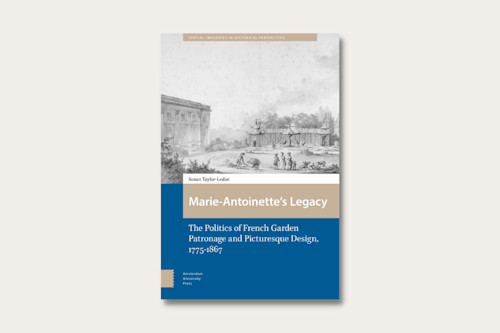'Marie-Antoinette’s Legacy' wins the J.B. Jackson Book Prize

Last week, the Center for Cultural Landscapes at the University of Virginia School of Architecture announced the 2023 Landscape Studies Initiative books award. We are delighted that AUP author Susan Taylor-Leduc's title Marie Antoinette's Legacy: The Politics of French Garden Patronage and Picturesque Design, 1775-1867 won the prestigious J.B. Jackson Book Prize.
About the awards
The JB Jackson Award is named after John Brinckerhoff Jackson, a pioneering landscape historian and writer who was a major influence on the field. The awards celebrated recent (2020-2022) scholarly publications of landscape historians, historical geographers, urban historians and art historians involved in landscape studies and the environmental humanities. This year’s book awards jury included continuing members, Kenneth Helphand and Therese O’Malley with newly added members, Elizabeth Meyers of the UVA CCL and former JBJ prize winner Jane Wolff.
About the book
Challenging the established historiography that frames the French picturesque garden movement as an international style, this book contends that the French picturesque gardens from 1775 until 1867 functioned as liminal zones at the epicenter of court patronage systems. Four French consorts—queen Marie-Antoinette and empresses Joséphine Bonaparte, Marie-Louise and Eugénie—constructed their gardens betwixt and between court ritual and personal agency, where they transgressed sociopolitical boundaries in order to perform gender and identity politics. Each patron endorsed embodied strolling, promoting an awareness of the sentient body in artfully contrived sensoria at the Petit Trianon and Malmaison, transforming these places into spaces of shared affectivity. The gardens became living legacies, where female agency, excluded from the garden history canon, created a forum for spatial politics. Beyond the garden gates, the spatial experience of the picturesque influenced the development of cultural fields dedicated to performances of subjectivity, including landscape design, cultural geography and the origination of landscape aesthetics in France.
